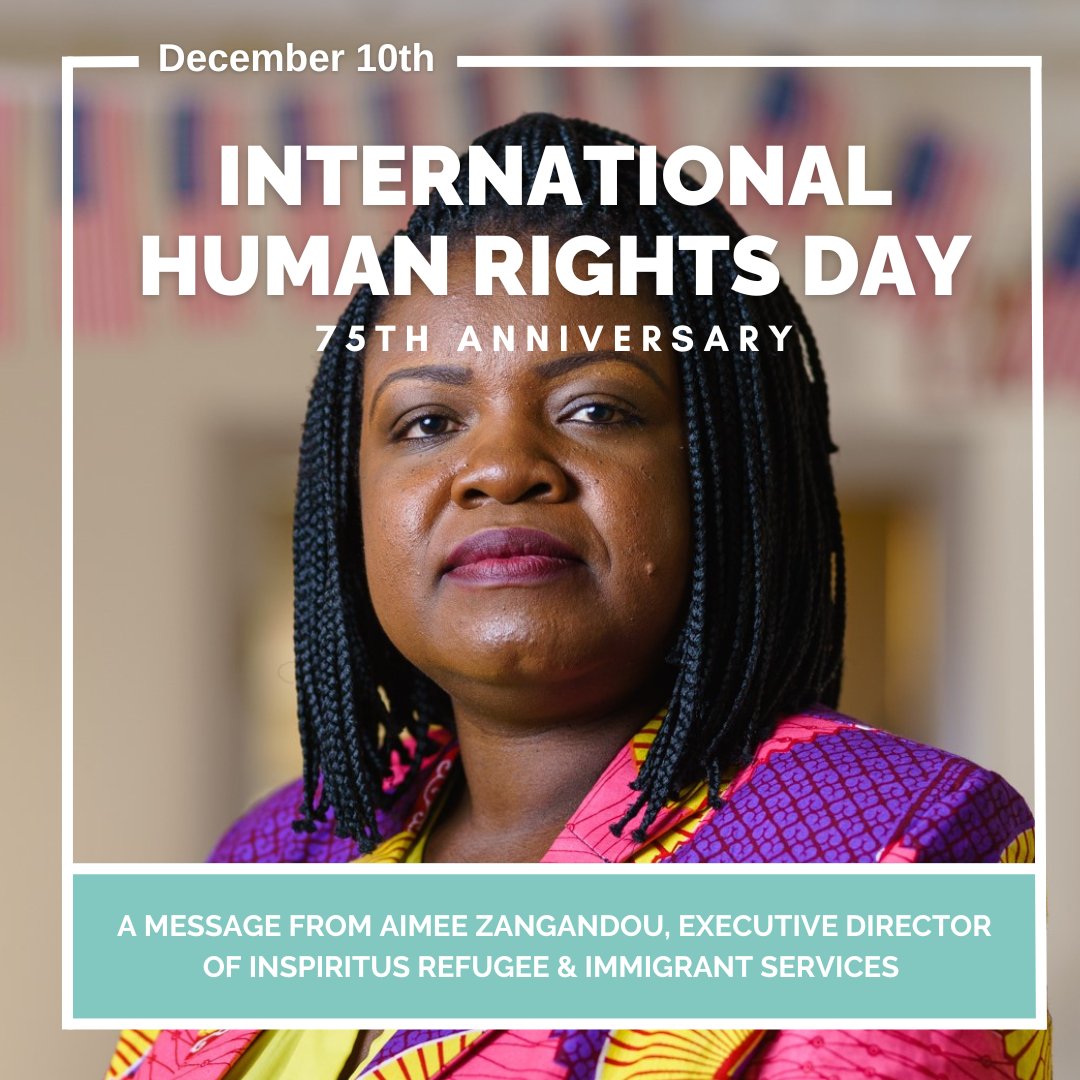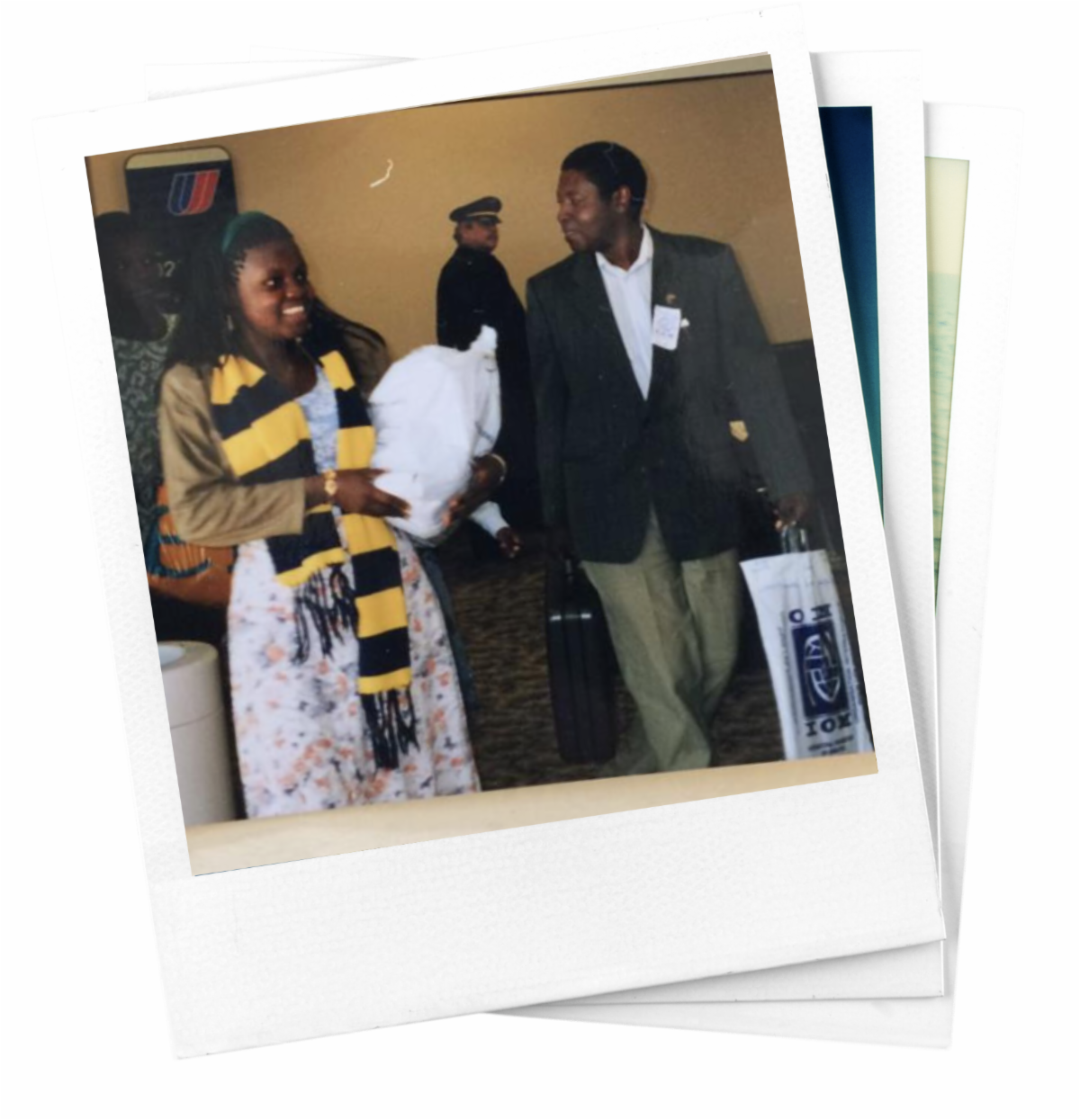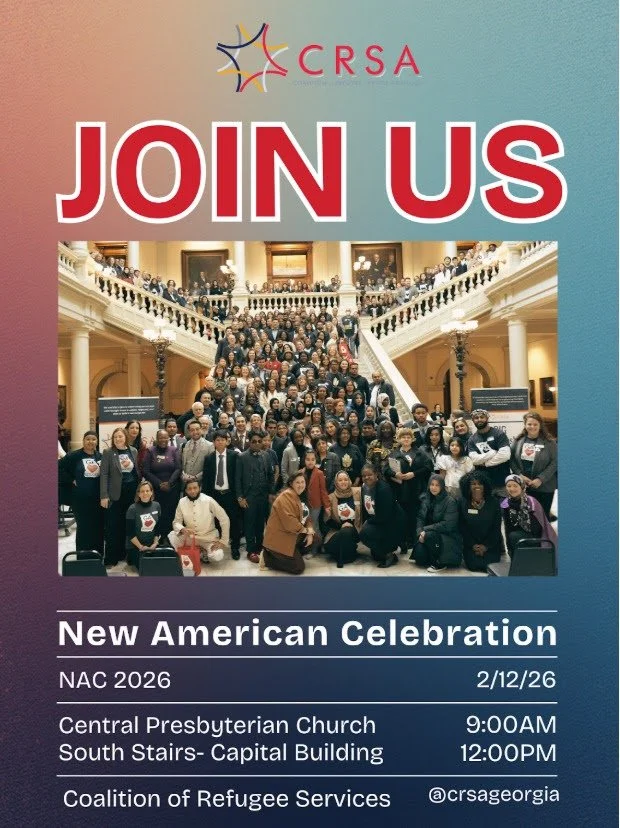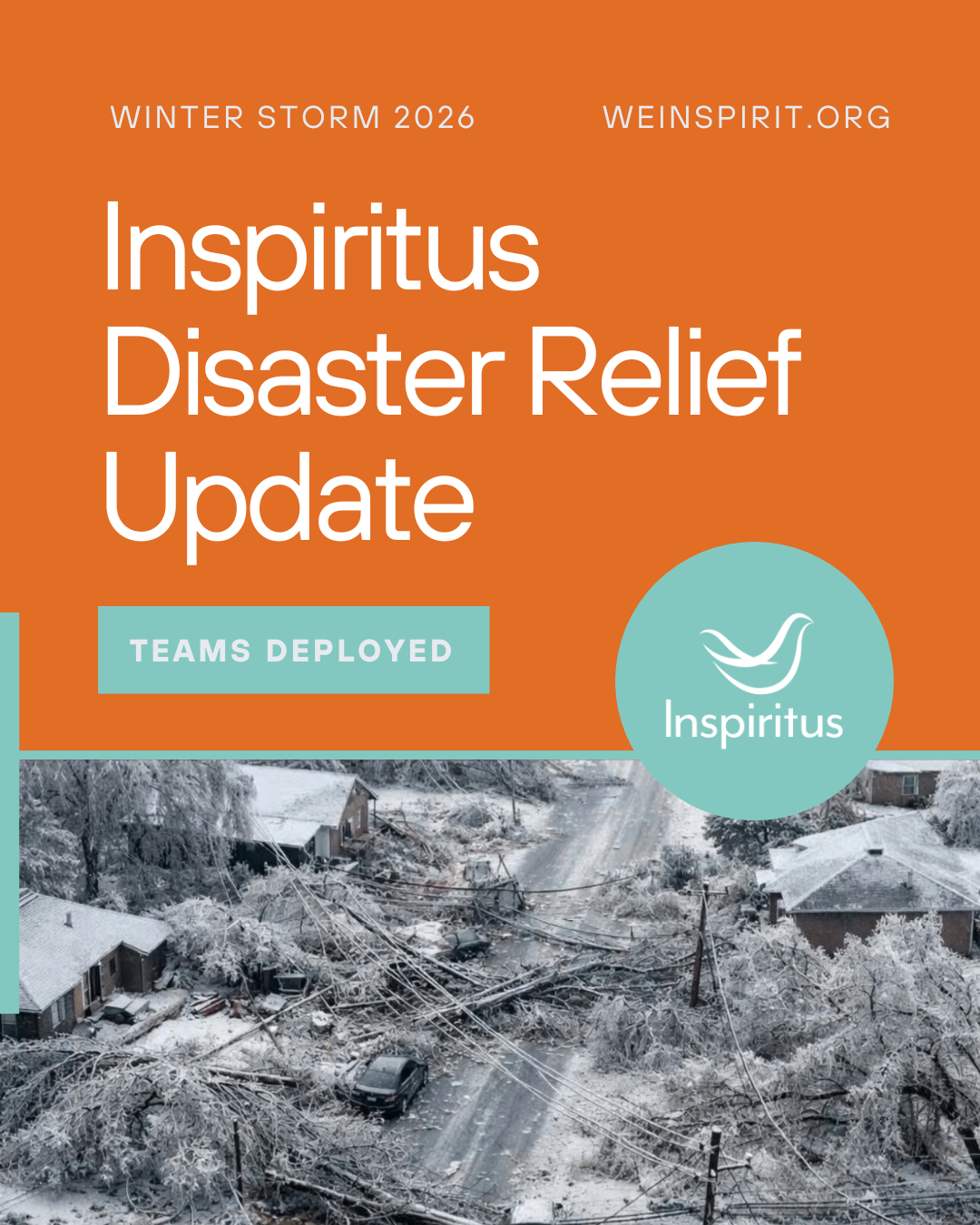International Human Rights Day - 75th Anniversary!
/Dear Friends,
Yesterday, December 10th, commemorated the 75th anniversary of International Human Rights Day, a day designed to recognize the United Nation General Assembly’s adoption of the Universal Declaration of Human Rights (UDHR), and the values enshrined in this landmark agreement. The UDHR’s signing marks the first time in history that such a large coalition of international countries adopted a shared set of principles that transcend the laws of their own respective governments.
These principles are rooted in a core belief that all of us as human beings should have equal access to the same set of certain, inalienable rights regardless of our race, religion, gender, ethnicity, political beliefs, or other characteristics. This includes most fundamentally the right to live and exist freely without fear of persecution.
Why the Universal Declaration of Human Rights is Personal to Me:
The UDHR is personal to me. It was in early April of 1994 that my family and I learned what it meant to be denied this basic human right, changing our lives forever. A campaign of mass genocide had been launched in our home country of Rwanda. As the risk of being killed increased with each passing day, my family and I were given no choice but to leave and find safety outside the borders of our own country. In the three months that followed, one million Rwandans would lose their lives.
My family survived because of multiple acts of kindness bestowed to us from friends and at times, even complete strangers. As the executive director for Refugee & Immigrant Services at Inspiritus, a nonprofit organization dedicated to serving vulnerable populations across the Southeast, I am fortunate to witness similar gestures of goodwill every day from individuals who have no personal connection to the new refugees they volunteer to support, but nonetheless feel compelled to get involved in our work because of their compassion and convictions.
It is precisely thanks to the hospitality of everyday people that Georgia’s refugee resettlement program is consistently ranked among the most successful in the nation.
However, given that less than 1% of the current 108.4 million people who are forcibly displaced will be offered the chance to resettle in a new country, we must be open to offering sustainable pathways for individuals escaping violence and persecution and who look to the United States as a champion of Democracy and human rights.
The right to seek asylum is one of the 30 tenants outlined in the UDHR and is one of several options for individuals in need of humanitarian protection to legally enter the U.S. Humanitarian parole is another pathway and has helped thousands of individuals fleeing war, persistent gang violence, or political tyranny, as was the case for the 1,697 Afghan evacuees Georgia welcomed last year after their country fell to Taliban forces.
In recognizing yesterday’s 75th anniversary, it is imperative that we pause to reflect on the progress made in our efforts to uphold human rights since the aftermath of WWII and the of the atrocities of the Holocaust. I wish history had unfolded a differently and the UN’s original vision of preventing future acts of targeted violence and forced displacement; sadly though, such atrocities have happened repeatedly in places like Cambodia, Kosovo, Darfur, Myanmar, the Democratic Republic of Congo, and now, Palestine.
This is not to say the intent of the UDHR has failed; on the contrary, its ability to act as a “north star” for heads of state committed to upholding the values of human rights has helped set a global precedent for their government and its citizens to similarly uphold these values.
As an example, look no further than Georgia’s native son, former President Jimmy Carter, who, in spearheading the passage of the US Refugee Act of 1980, solidified our nation’s role as a leader in refugee resettlement with the creation of a formal government program that has helped provide over three million refugees find safety, stability, and success, in the United States.
While few of us yield the power to prevent human rights violations from taking place, we all have the power as an electorate to ensure our lawmakers are upholding tenants of US and international law that offer life-saving protections for individuals facing war or persecution. As this piece is being written, Congress is simultaneously engaged in negotiations that could result in restricting access to both humanitarian parole and asylum.
HOW YOU CAN HELP:
Help us uplift the 75th anniversary of the UN’s Declaration of Human Rights by calling your Members of Congress and reminding them that asylum is a human right. You can find your House Member and Senators here and may refer to the sample script below.
“Hello, my name is [Insert Name] and I am a constituent from [City, State]. I am calling to ask that the [Representative/Senator] stand with asylum seekers and remember that the right to asylum is a human right that every person should be able to claim when their lives are endangered in their home countries. I am aware that Members of Congress on both sides of the aisle are considering tightening asylum access as a concession for passing the President’s requested supplemental foreign aid package to Ukraine and other countries by the end of the year. Asylum is the difference between life and death for individuals in need of immediate safety and it should not be used as a bargaining chip. The protection of fundamental human rights has always been a corner stone of our country’s ideals and foreign policy priorities. As such, I am urging the [Representative/Senator] act to protect these ideals and vote “no” on any measures that would further restrict asylum access for individuals escaping extreme violence and persecution. Thank you."
To learn more about how YOU can get involved and help empower the refugees we accompany on their path from surviving to thriving, visit our website at www.weinspirit.org.
Sincerely,
Aimee Zangandou
Executive Director of Refugees & Immigrants Services
Inspiritus















